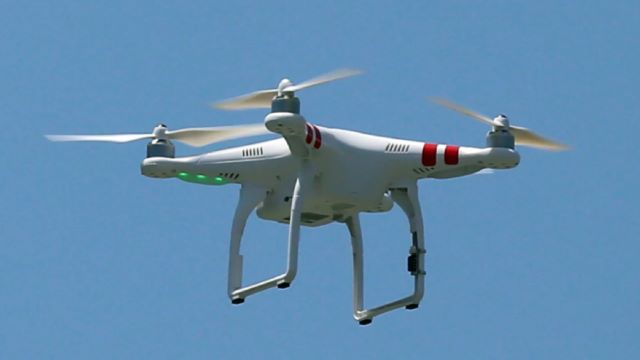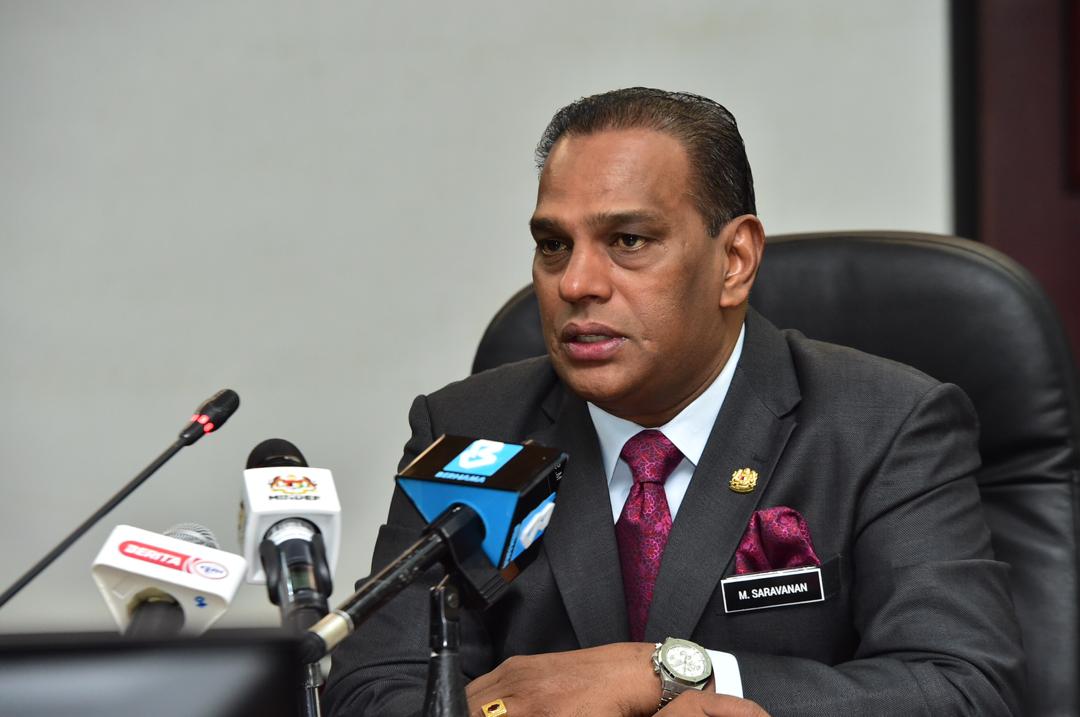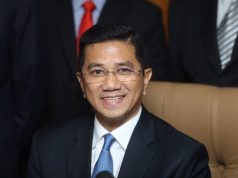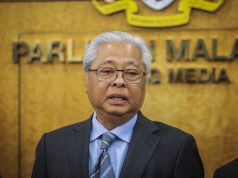Drone – file pic
By Nina Muslim
KUALA LUMPUR — The message came from the sky, almost like a voice from the heavens.
It was loud and clear: don’t stand so close together, we need to flatten the curve. (Flattening the curve refers to community isolation measures that keep the daily number of COVID-19 cases at a manageable level for healthcare providers.)
The voice was of an unidentified person located some distance away and the messenger was an unmanned aerial vehicle or what is more popularly known as a drone.
Drones are now being used, during the COVID-19 Movement Control Order (MCO) period, to aid the police and the military to conduct aerial surveillance and monitor the movement of people.
The police and military have a partner in the Aerodyne Group, which came forward to assist upon a request from the Malaysian Communications and Multimedia Commission (MCMC).
Aerodyne Group founder and CEO Kamarulazman Muhamed said the MCO had affected the company operations, leaving its drone-operating teams with little to do.
“We have many teams that are idling right now. We have the available resources. The police have a limited number of teams. It was a perfect match. So, straightaway I offered our capabilities,” he told Bernama.
Twenty-six Aerodyne teams are working with the police and military, along with the drones provided by three other companies.
Each team consists of five people and two drones. Currently, 92 teams are operating all over the country, according to a police officer involved in the drone operations.
Furthermore, amateur and professional drone pilots around Malaysia are on standby, ready to deploy more drones to assist the government with surveillance on a voluntarily basis.
The objective is crowd control, ensuring compliance with the MCO and providing information of the situation on the ground to the government.
Using a proprietary tracking software, the teams can predict which areas would likely have crowds. They then use the drones to disseminate information to the people and, if necessary, caution them.
“We help by telling them what to do, what not to do; that they should not go out, but go indoors; so that’s how we help. It also reduces exposure to the authorities, to the police and the armed forces,” said Kamarulazman.
He does not expect the MCO to be lifted anytime soon and said the usage of drones is a necessary action to help contain the COVID-19 pandemic. (The MCO, imposed on March 18, has been extended to April 28.)
Several people interviewed said they agree to the use of drones to get the people to comply with the MCO but pointed out that these UAVs should not be flying around after the MCO has been lifted.
Neelaveni Neela, a nurse at a private hospital in Kuala Lumpur, said that as a frontliner, she wants people to stay home to reduce their risk of being exposed to the coronavirus.
“(Using drones) depends on the timing. It’s good now to take care of the people and Malaysia,” she said, but added that such surveillance of the public should end once the pandemic is no more.
Kamarulazman acknowledged the people’s concern over the loss of privacy and agreed that the drones should stop tracking the movement of the people post-MCO.
“The intention (right now) is just to look at compliance with the MCO but there is no denying that drones would be useful as well to maintain general law and order,” he said.
Even without government involvement, there may be eyes in the sky keeping track of people. During the current MCO, hobbyists are officially on standby in case the government needs their services. In the meantime, they are policing their own communities and reporting violators.
Wan Hasyidan Wan Hussein, a technical lecturer at the Industrial Training Institute (ILP) in Mersing, Johor, said the police have received tip-offs on MCO violators from bored drone enthusiasts monitoring their neighborhoods on their own.
“Actually, the police got information from a drone operated by a member of the public. He saw some people playing outside and reported the matter to the police who arrived immediately to arrest the violators,” he said in reference to one such instance.
Kamarulazman said constant surveillance, either by the state, corporations or other people, is now the reality.
“Being watched, I think, becomes part and parcel of the evolution of technology,” he said, adding that everyone’s lives are now connected at unparalleled levels.
“This connectivity allows us to evolve, our society to evolve, to be more advanced, (and) it does come with the threat of the abuse of all this information.
“All we need to do then is to address the cyber security aspect of it, to make sure that privacy is protected,” he said.
— BERNAMA











